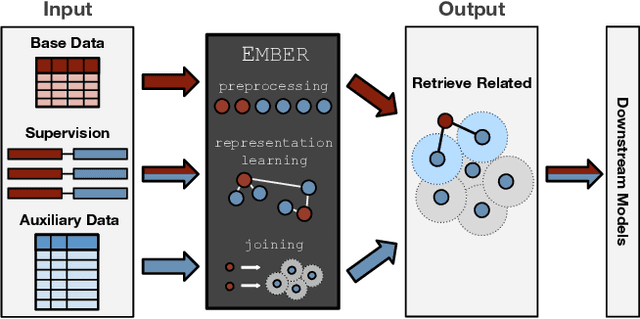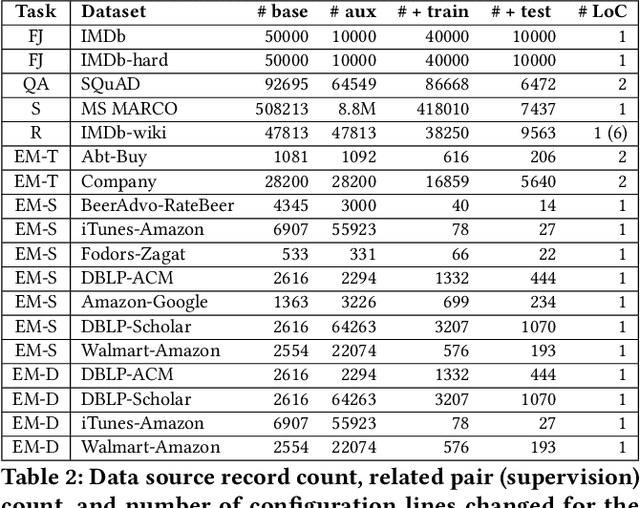Ember: No-Code Context Enrichment via Similarity-Based Keyless Joins
Paper and Code
Jun 02, 2021



Structured data, or data that adheres to a pre-defined schema, can suffer from fragmented context: information describing a single entity can be scattered across multiple datasets or tables tailored for specific business needs, with no explicit linking keys (e.g., primary key-foreign key relationships or heuristic functions). Context enrichment, or rebuilding fragmented context, using keyless joins is an implicit or explicit step in machine learning (ML) pipelines over structured data sources. This process is tedious, domain-specific, and lacks support in now-prevalent no-code ML systems that let users create ML pipelines using just input data and high-level configuration files. In response, we propose Ember, a system that abstracts and automates keyless joins to generalize context enrichment. Our key insight is that Ember can enable a general keyless join operator by constructing an index populated with task-specific embeddings. Ember learns these embeddings by leveraging Transformer-based representation learning techniques. We describe our core architectural principles and operators when developing Ember, and empirically demonstrate that Ember allows users to develop no-code pipelines for five domains, including search, recommendation and question answering, and can exceed alternatives by up to 39% recall, with as little as a single line configuration change.
 Add to Chrome
Add to Chrome Add to Firefox
Add to Firefox Add to Edge
Add to Edge